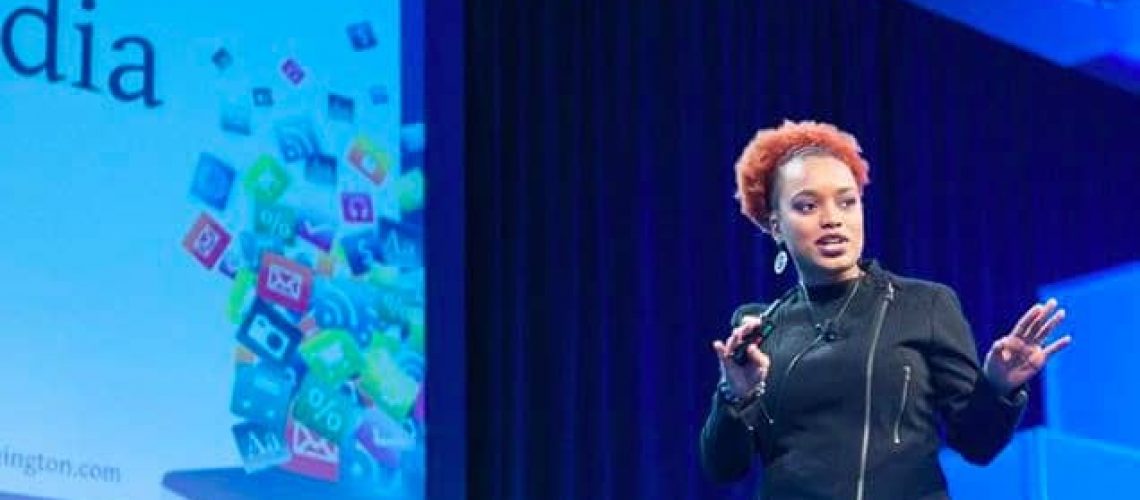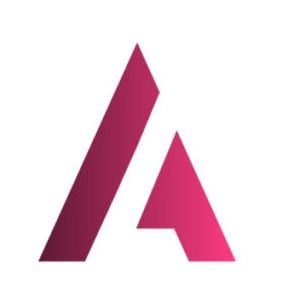On 20 June, PinkPetro had the privilege to host two thought leaders in leadership and digital transformation: Khaliah Guillory and Jim Claunch.
Before launching her health and wellness star-up Nap Bar, Khaliah was a VP at Wells Fargo. Jim was a leader in digital innovation at Equinor/Statoil. They were invited to speak on ‘Creating Workplaces Where People Feel They Matter.’
‘It’s About EQ versus IQ’
Khaliah summed up her philosophy about leadership: “It’s about
EQ (emotional intelligence) versus IQ.” This is where she said leaders need to
have transparent and authentic conversations with their teams.
Khaliah gave the example of her engagement score going off the charts once she stopped bringing in her mobile phone to work. She started leaving it in the car instead, and got real with her employees for the first time.
“Managers tick boxes. Leaders listen!”.
Jim agreed, saying he could count the number of leaders he reported to on one hand over the course of his 30-year career, versus managers.
Khaliah agreed. “We don’t talk about that emotional intelligence, which is knowing yourself and being able to read others.” She likened EQ to be the tip of the iceberg – it’s most of what it takes to be a truly successful leader. “The reason we miss it is it’s hard and it deals with people. You have to slow down and check those boxes. That’s IQ stuff.”
The main challenge with leading teams, she said, is “I can’t motivate and inspire you if I don’t know you.”
Jim shared that at Equinor, “I taught a course about emotional intelligence. I was basically the only one who talked about it on a consistent basis.” He gave the example of someone who ran their onshore business. “He believed in [EQ] so much that when we did field safety training for leaders, he had me co a 20-minute training on emotional intelligence. It rang true for them every single time.
If leaders won’t take the time to connect with their people, people are less likely to talk to them about things that matter!”
#MeToo
When asked about the impact of #MeToo on the workplace, Jim said he felt it was “a cop-out” for men to respond to the movement by saying they couldn’t have meetings with women anymore.
As male leaders, he said, “we need to be transparent, and we need to be open to protect me and to protect you.”
“If we can have meaningful conversations at work and into the community, those ‘isms (sexism, racism) won’t exist and we can have a meaningful dialogue about the things that matter,” said Khaliah.
Personal GRIT
Jim said the opportunity for leaders is to focus on their own GRIT (personal growth, resilience, innovation and talent).
“This is an opportunity to learn as never before. You can do a lot of things and check a lot of boxes in the corporate world. But it’s about finding things that make you happy, where you can be yourself and find your passion.”
If the company you work for isn’t in alignment with your values, he said, do something about it. “Everyone needs to find a company that believes what they believe. If you don’t believe in the same values, or if the company says they have the same values but doesn’t live them, get out."
"If you don’t feel you can totally be yourself, get out.”
Khaliah agreed. “I had gotten almost to the top of the corporate ladder. Every time I got to the next rung, I wasn’t completely satisfied.
My purpose and passion hadn’t yet met. My ladder was leaning against the wrong building. If I was 100% fulfilled here, I wouldn’t be feeling this!” She said, the best thing to do in this case is to look at what your transferable skills are, and networks, and transfer them out.
“The GRIT-tier it is, the better it is. Nobody can measure your GRIT but you!”
Khaliah said people told her she was crazy to leave the C-suite. “I wanted to be a VP before I was 30. I already checked those boxes and wanted to feel that passion and purpose. It will propel and drive you to get that contribution and satisfaction.”
She became what is now known as a ‘corpreneur’. Now her passion is helping employees eat well, and nap, and focus on the wellness as well as productivity of their employees. “Napping has so many benefits, it helps metabolism, blood pressure, monitors your weight.” She supports companies creating ‘nap pods’ on site in former supply closets and unused spaces.
“Simply put, diversity is about creating a space for people who bring who they are,” she said.
Jim agreed with the new way of working. “You’re moving from an old way of working 1.0 to a digital 2.0. new competencies and younger generations. They work differently, they dress different, they want to come to work at different times.
It takes courage to build an environment where all employees feel included as part of the team. Creating that environment helps employees feel in the game.”
Khaliah said her core focus with her team became: “Whenever I’m
with you, I’m going to be intentional and create a human to human interaction.”
Jim agreed that creating a workplace where people feel they
matter “started with this and ends with this. It’s leadership, not management.
It takes courage.”




